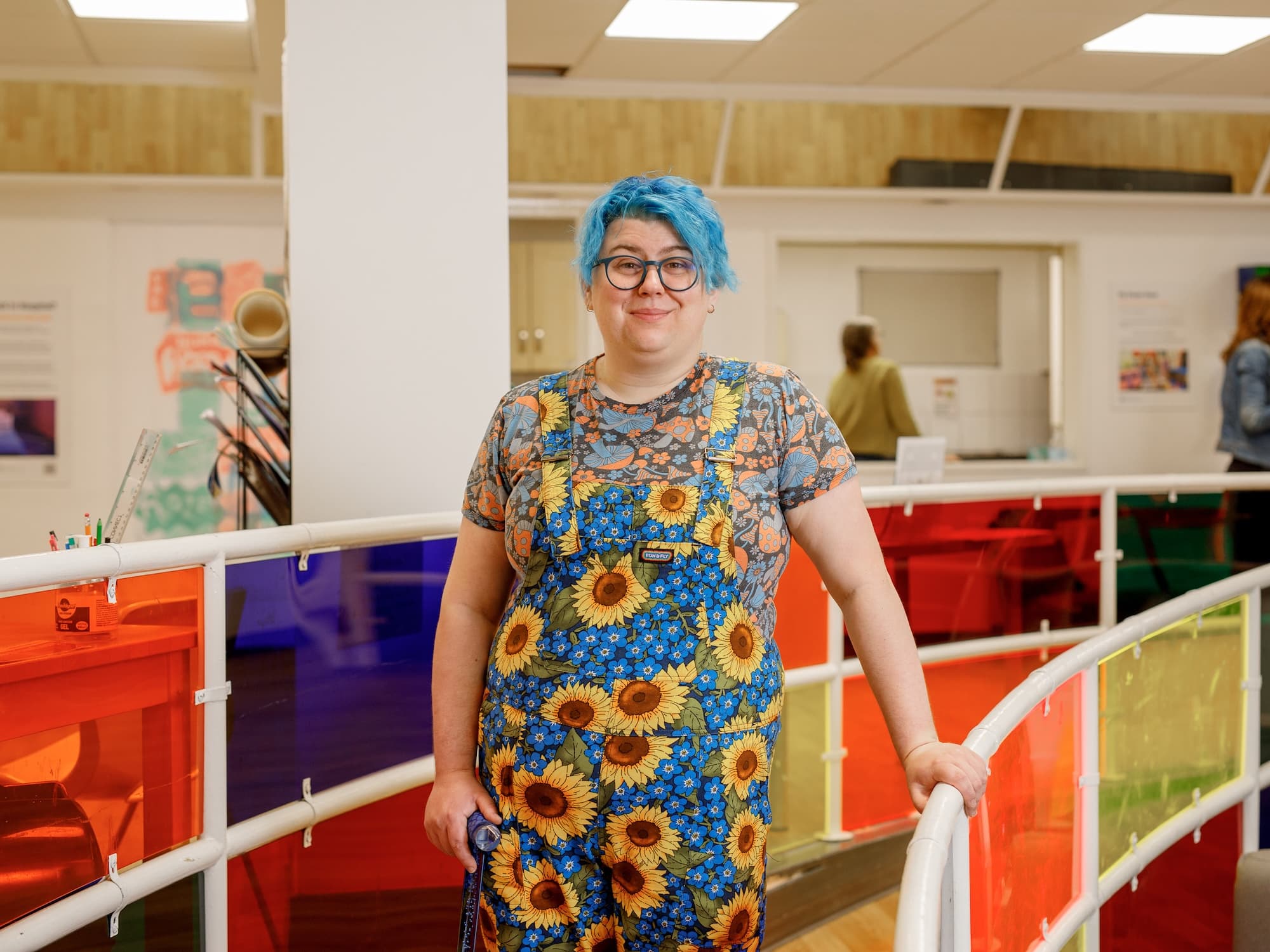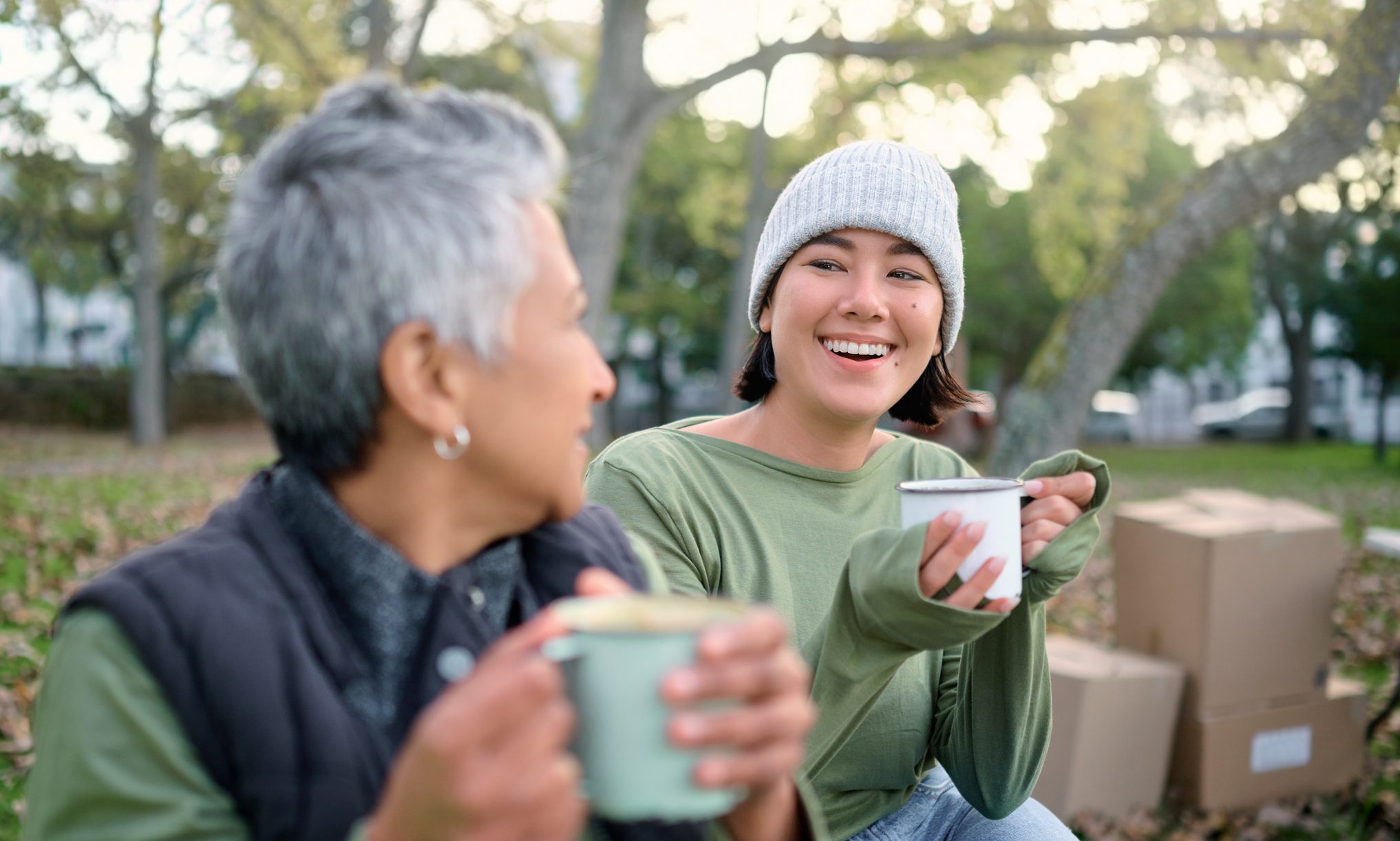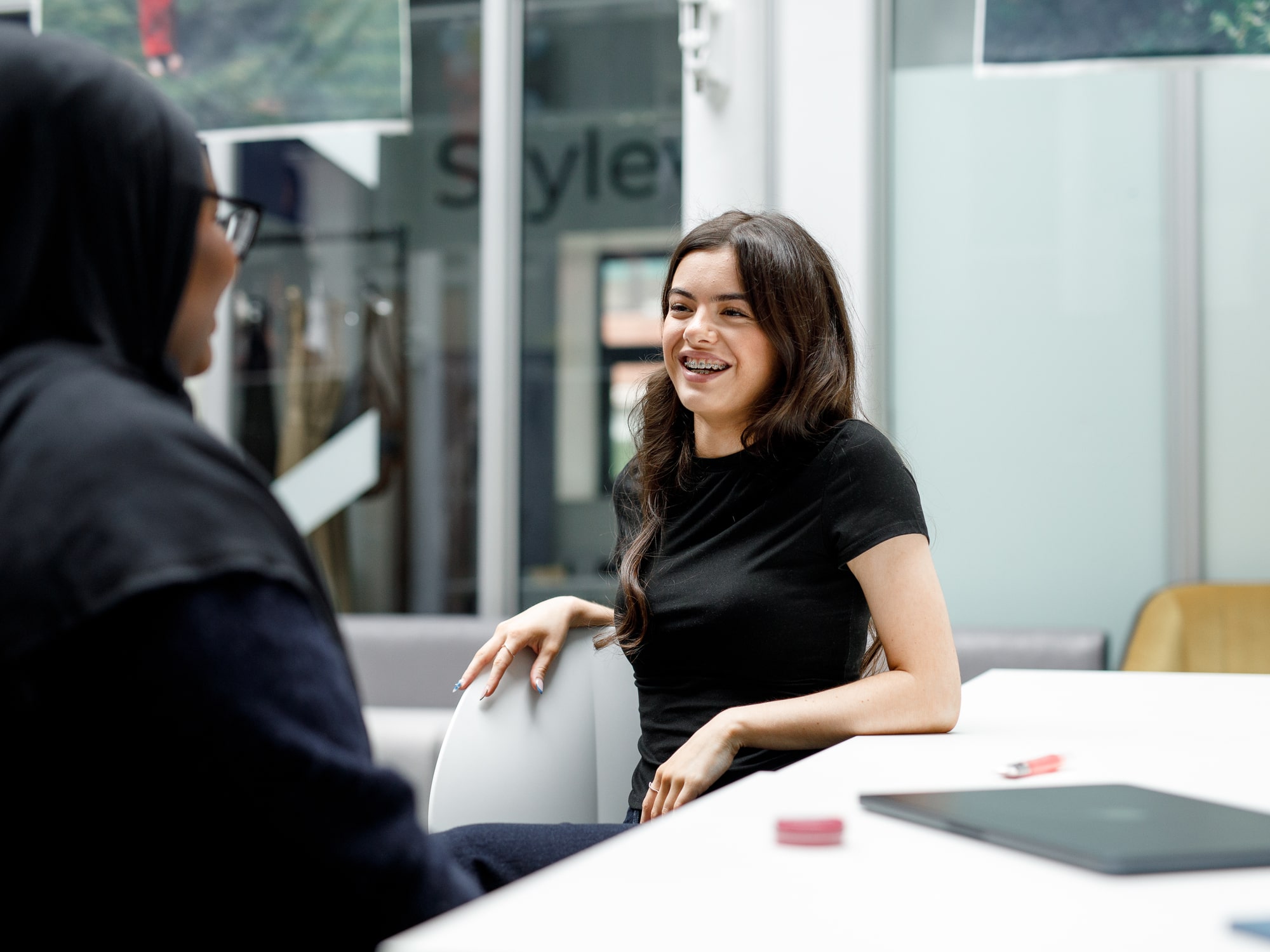Speak Out helped me find my voice
Growing up, I had a lot of challenges. I was diagnosed with chronic fatigue syndrome when I was 12, and then later I found out I had autism as well as a learning disability. It’s been a big journey, discovering who I am.
Some people say giving yourself labels can make you feel isolated, but for me, it did the opposite. Before, I felt completely alone but then I found people who actually understood me.
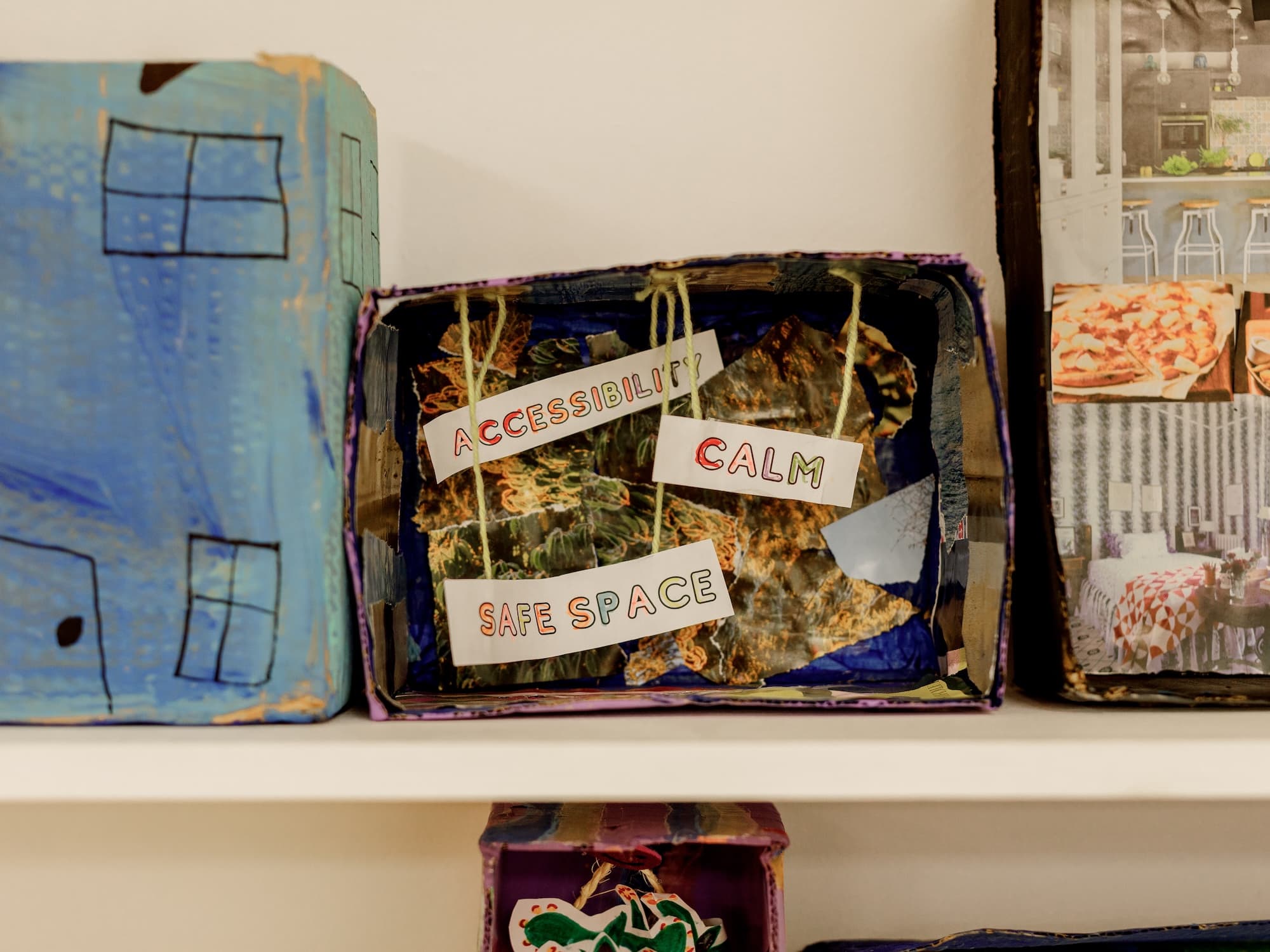
Barriers to learning and work
I didn’t have any friends because I missed so much school due to illness. I tried college, but I didn’t get the support I needed. I think the lack of support to choose what I wanted to do was a really big problem. I wanted to do art, but I didn’t have the portfolio they needed to study this at college.
After that, I went on Job Seekers allowance. I applied for loads of jobs but no one wanted me. Even volunteering felt impossible – no one called back. It was really depressing. I eventually started some City & Guilds courses in dressmaking and art. They were only £10 while I was on benefits, and they gave me a bit of confidence back.
“…I applied for loads of jobs but no one wanted me. Even volunteering felt impossible – no one called back.”
Discovering a new path
At 22, I applied for a supported internship at Amaze, a charity for children and young people with disabilities in Sussex. I didn’t get it, but they asked if I wanted to volunteer – and I was delighted to. In the end, I completed the internship after all when the intern left.
That’s how I found out about Speak Out. It was the first time I’d heard how advocacy can help people with learning disabilities take control of their lives and have a say in the things that matter to them.
Speak Out run a self-advocacy group called the Power Group, which supports young people with learning disabilities transitioning into adulthood. The group supports young people to build their confidence to speak up and talk about the things that are important in their lives. It was wonderful to be able to have deep conversations with people who also had disabilities. When I found out that some were living independently, I was amazed.
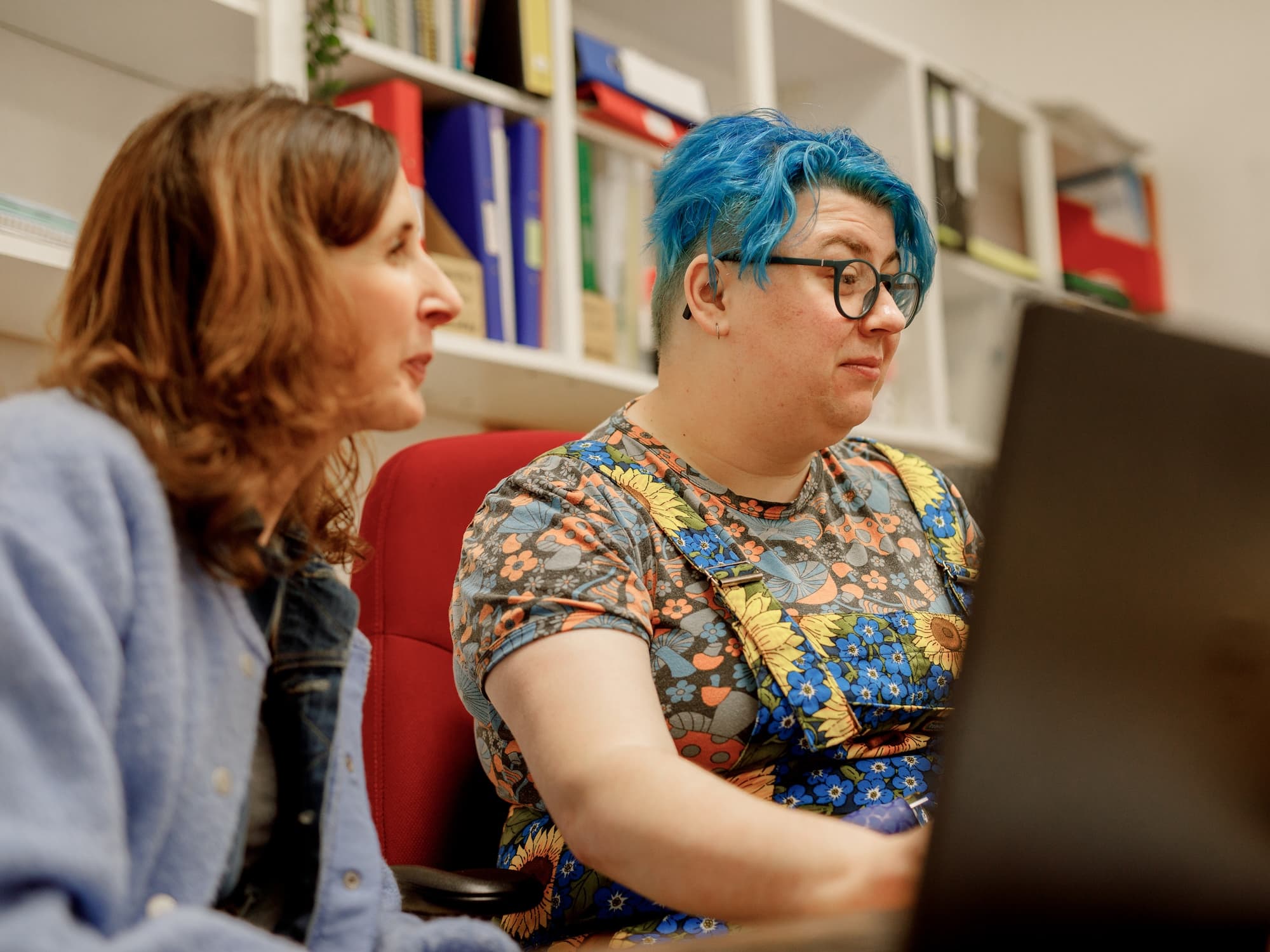
“…It was the first time I’d heard how advocacy can help people with learning disabilities take control of their lives and have a say in the things that matter to them.”
A place to call home
I got one-to-one advocacy support from the transitions project at Speak Out which helped me explore options for supported accommodation and reminded me of the kind of home I needed when I nearly accepted a flat up six flights of stairs.
Now I live independently, with support. I have a carer, but it’s my space, my home. I can do my artwork all night if I want to. That freedom has changed my life.
I went back to college to study art. I loved trying different techniques, especially machine embroidery and making 3D models.
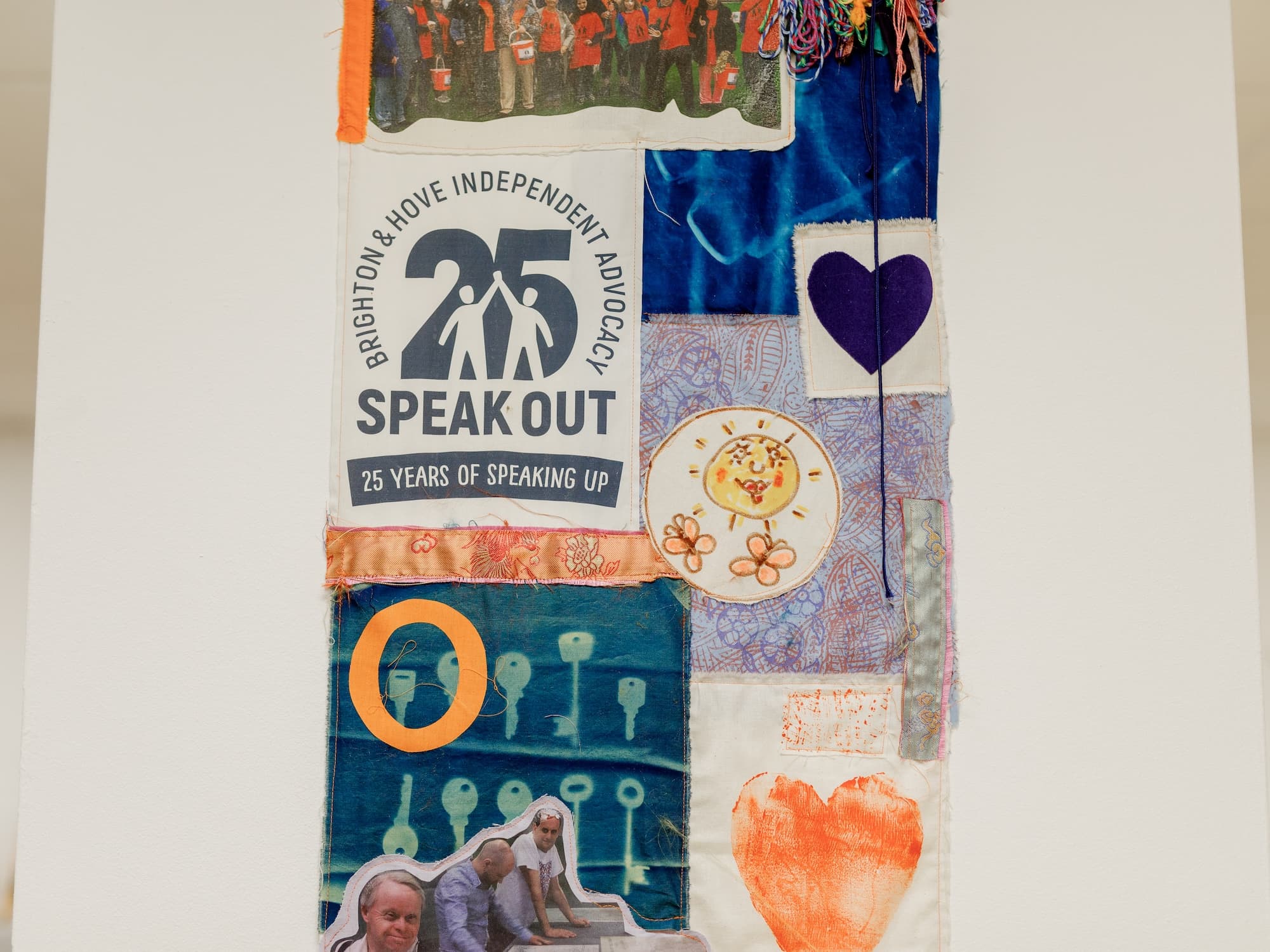
Campaigning for change
Speak Out became a huge part of my life. I got involved with the self-advocacy project’s steering group and started campaigning – about travel access in Brighton. I also joined the Thumbs Up Group, training future doctors about autism and learning disabilities and speaking out about health inequalities.
Then a job came up with the transitions advocacy project at Speak Out – I applied and was really thrilled to get it. The project supports young people with learning disabilities on their journey towards greater independence. We want young people to have more choice and control over their lives and to show them that, like me, they too can have a say in their future.
At the moment I am working with colleges, explaining what support is out there for young people with learning disabilities. I’m helping with presentations, running workshops and making sure our information is as inclusive as possible. I love being part of the team here.
“We all have a place in the world, and our voices need to be heard. Now I want to help others find theirs too.”
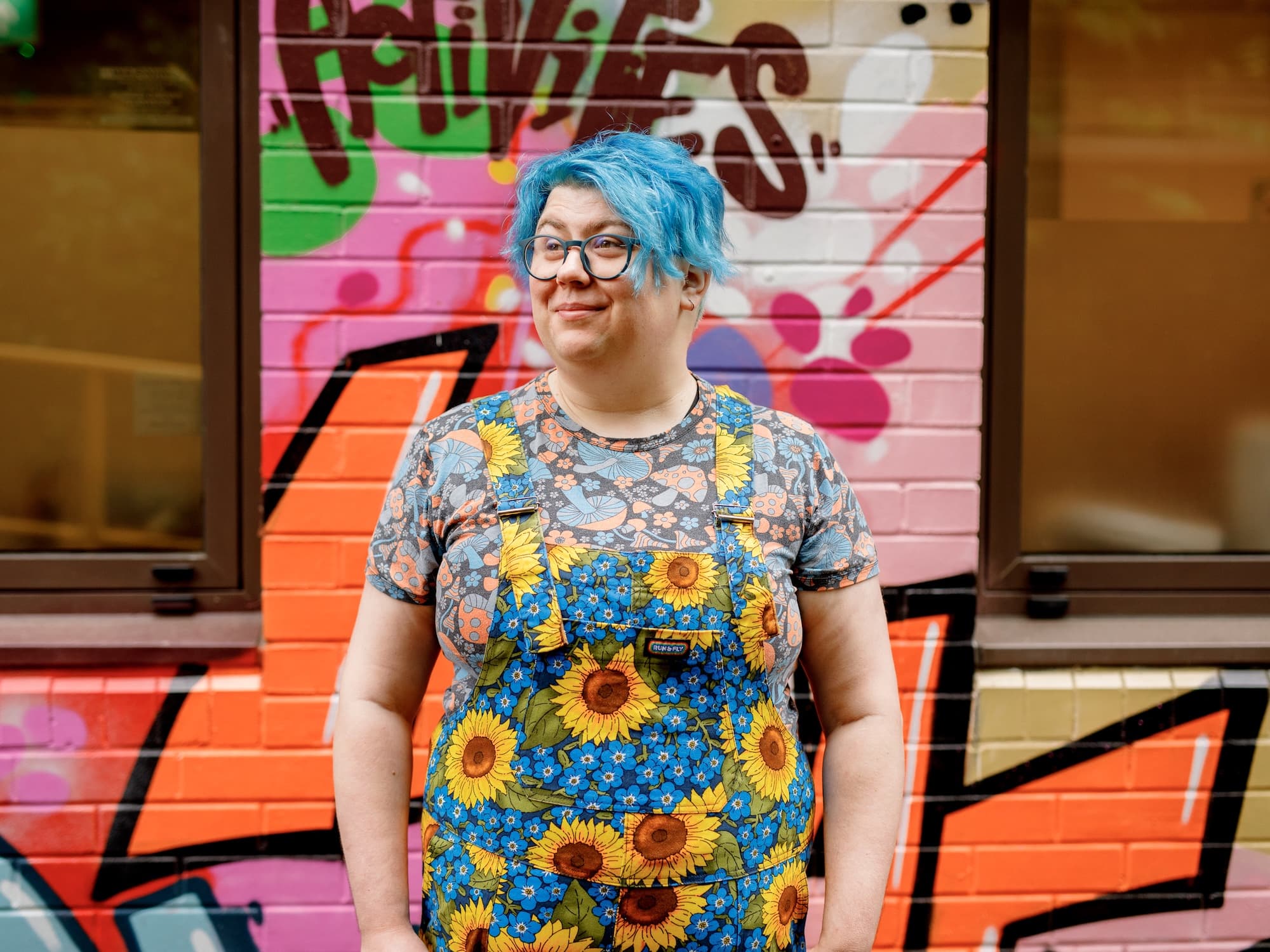
A life of possibilities
One of the best things has been the art projects at Speak Out. We recently had an exhibition at the Jubilee library in Brighton. We showed grafitti art and printed posters about our housing campaign to make sure our voices get heard. I’ve also joined a Social History of Learning Disabilities group. We’re working with the Open University to study how attitudes to learning disabilities have changed over time. It’s emotional work, but really powerful.
I also helped set up an LGBTQ+ group at Speak Out, because a few of us wanted a space to talk about our experiences. Just having that safe space where we can be ourselves is really important.
My friends have noticed the difference in me. I didn’t talk much before – I was really quiet. Now, as my mum says, I have too much of a voice! But we all have a place in the world, and our voices need to be heard. Now I want to help others find theirs too.
Thanks to Speak Out, I’m thinking about the future for the first time. I am thinking about training in art facilitation or even art therapy. Life feels full of possibilities now.
We fund Speak Out’s transitions advocacy project and the Power Group.
